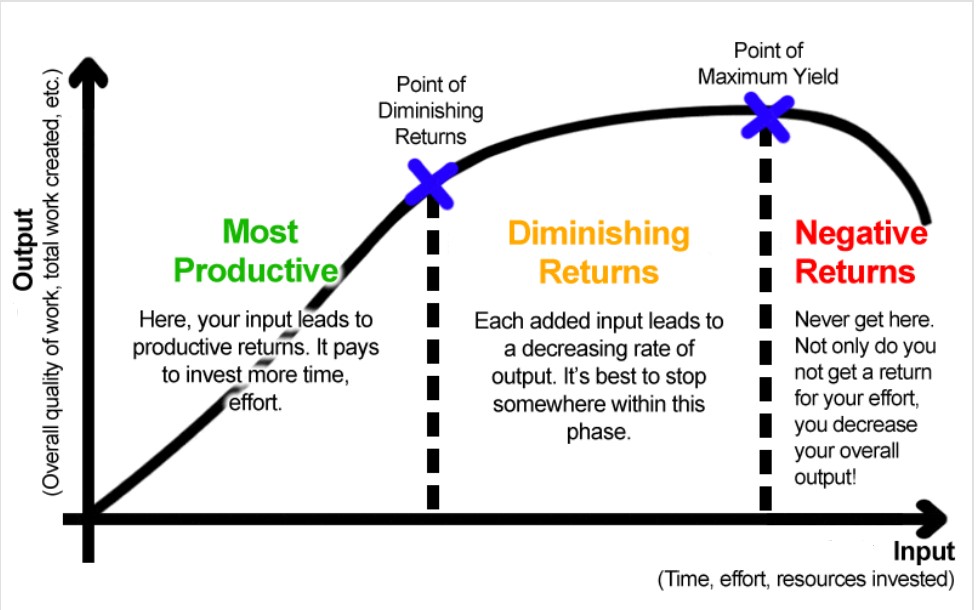A recent meta-analysis of various studies done in the past showed that perfectionism is on the rise. It was found that undergraduates in US, UK, and Canada were more likely to have the perfectionist mindset than the previous years. Two in every five adolescents are likely to have a perfectionist mindset. It has also been found that those with such a mindset are more prone to other mental health issues like depression, anxiety, self-harm, eating disorders, chronic headaches and even suicide.
In a world where we share a lot of our lives on social media, the desire to be perfect increases substantially because we are constantly seeking approval from others. Since we all know we are not perfect deep inside, there is a need for validation from others that all is good with us. This is why we indulge in touched-up images to put on Facebook, talk about how great our lives are, post innumerable family images taken during an international vacation and more. All the time we ignore the real person, the positives that we do know we have and endlessly run towards the pursuit of perfection.
Caveat: Ever since I started writing this series on perfectionism, I have had some people questioning me about this. Their argument is that giving up perfection would be akin to giving up the pursuit to be better. It would mean giving up wanting to be better, striving for improvement, and reaching out for the stars. I want to clarify this point before I suggest ways of managing the perfectionist mindset.
Giving up the perfectionist mindset is not about stopping to become better. It is giving up the obsessive part of yourself that pulls you down every time you make a mistake. It is freeing your mind from the fear that holds you back from even starting projects. It is letting go of the belief that nothing is good enough unless it is perfect. It is accepting yourself and loving yourself for who you are and encouraging your potential to manifest.
Slaying the Perfectionist Monster

Since perfectionism is a mindset, the most important aspect of avoiding the pitfalls of perfectionism is to control the way you think. Those who tend to have a perfectionist attitude have an unhealthy relationship with goals, action, failure, past mistakes, and even successes. Here is how to change the way you think about each of these aspects so that the unhealthy thinking is modified into a healthy one.
Goals
When we have an unhealthy relationship with goals, we feel overwhelmed by the goals and tend to worry all the time about whether we will succeed or not. A healthy attitude towards goals can be identified when we feel excited and positively motivated to start working towards the goals.
Action
Procrastination is an immediate sign that we fear something and in the case of the perfectionist it is often waiting for the perfect moment to start. A moderate approach is to start the work and improve along the way, learning from mistakes or obstacles that come along the way.
Failure
When we beat ourselves over every small failure (or even big ones), we tend towards a perfectionist mindset. A good change would be to look failures as stepping stones to success (an axiom we were taught in school but surely have not internalized as yet!).
Past mistakes
Regret and constant self-criticism is a hallmark of how a perfectionist thinks about mistakes. There is no healthy acceptance or learning. To change this way of thinking, you have to understand that failures are learning opportunities that will ultimately lead to success.
Success
No success is good enough for a perfectionist because it can always be better. Rewarding yourself for the small wins as you go along is more likely to get you to your goal than pulling yourself down with negative self-talk.
Applying the Law of Diminishing Returns
Sometimes a good way of checking yourself in these areas is to apply the Law of Diminishing Returns. This means keeping a close watch on the effort you are having to put into something and reviewing the incremental gains that you get from those efforts.

Think about the first bite of chocolate that you taken when you are craving for it. With every next bite you take, the satisfaction that you derive from the chocolate reduces. The same law applies to sleep or recreation. Sleeping for a few hours feels good but if you have overslept and continue sleeping for 12 hours, you wake up feeling groggy and tired.
Catch yourself before you get into the realm of negative returns and make sure that you assess the situation objectively.
It is not all About Work
Another myth about perfectionism is that it is related mostly to work. With words like failure, success, goals and action being spoken about, I do want to state that perfectionism can exist in all walks of life. Some of the other aspects of managing this mindset concern an overall change in attitude towards self and others.
Give up all-or-nothing
The perfectionist mindset is almost always an all-or-nothing approach. If you think about it, the approach only leads to nothing-and-nothing especially since perfectionists often do not start taking action because of specific beliefs. Either it is the procrastination as mentioned above or it is the belief ‘if I cannot be perfect at it, why bother at all’. It leads to complete inaction making sure that you actually reach nowhere. It is true that you will never fail if you never try anything, but then you never try and anything and decay every minute.
Relationship with self

As we have learnt before, perfectionists are often careless about their health and do not engage in self-care. The behavior emanates from the negative self-talk that most perfectionists engage in, often resulting in lack of confidence and lack of love for themselves. When something goes wrong (and almost always something goes wrong in the eyes of a perfectionist), the self-talk that resonates in the mind is
“I hate myself”
“I could have done it differently”
“If only I had not stopped”
“I am so silly to have given up what I had”
These thoughts only reduce self-regard and lead to undermining your own capabilities.
To avoid these pitfalls, make a list of 10 things you love about yourself. Yes, 10! Do it even if takes you time to think about them. Write about the things that you are doing that bring you happiness and satisfaction and know that you are doing them right. Police your thoughts constantly and ‘STOP’ yourself the moment you catch yourself saying anything negative about yourself. Change the ‘I am not good enough’ to ‘I am my capabilities and I am improving every second’.
These quick tools help you in reminding yourself about your positive side so that you do not go reeling into a dark space.
Relationship with others
One of the top regrets that people have on their deathbeds is that they did not spend enough time with their loved ones. Irrespective of your profession and how important you feel a contribution you are making to the world, take out time for your loved ones. People who love you help you feel better about yourself because they can sometimes see you for all the potential that you do not see in yourself. Needless to say, being around with your loved ones, communicating your emotions to them, using the amazing sense of touch with hugs and kisses will loosen up the nerves that you keep tense all the time.

Last but not the least – Celebrate each and every (small or big) achievement, threshold, anniversary, and then again, celebrate some more, just like that!


Recent Comments